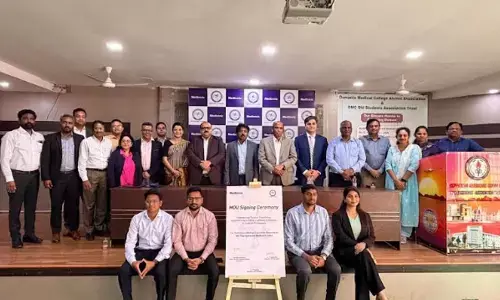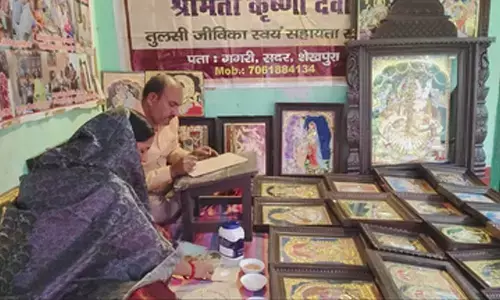Brain and Spine TB is a rising threat

Brain And Spine TB is a Rising Threat. People hailing from weaker socio-economic backgrounds and the lower financial strata are the most affected due to improper sanitation, unbalanced lifestyle and inadequate medical provisions and awareness
People hailing from weaker socio-economic backgrounds and the lower financial strata are the most affected due to improper sanitation, unbalanced lifestyle and inadequate medical provisions and awareness
At an awareness programme organised by the Helping Hand, an NGO, at the Owaisi Hospital and Research Centre on Saturday, it was disclosed by eminent neurologists that the passive lifestyle, junk food consumption and weak immune system were leading to brain and spine tuberculosis (TB).
Dr Syed Ameer Basha, consultant neurosurgeon, said, “If it is not diagnosed on time, the Central Nervous System Tuberculosis (CNS TB) could prove lethal. 50 per cent of the infected people either die or are left with neurological deficit that paralyses their regular lifestyle.”

People hailing from weaker socio-economic backgrounds and the lower financial strata are the most affected due to improper sanitation, unbalanced lifestyle and inadequate medical provisions and awareness.
Dr Basha said that the migration of people from rural to developed areas, decreasing drug resistance and reduced resources of treatment and surveillance were factors leading to the resurgence of this disease. He urged the government to provide anti-tuberculosis treatment to the CNS TB patients for a longer duration against the short-term provision under the World Health Organisation’s DOTS programme that is currently in place.
Prof. T Umesh, consultant neuro physician, regretted that it was unfortunate that even though over 13.7 million patients were affected over the world, the treatment and diagnosis of the disease in the country was still in the primary stages.
“The disease is often confused with low-grade fever, headache and confusion; symptoms that are concurrent with some other diseases. Meticulous diagnosis is required to prevent fatal consequences,” he said.
Mujtaba Hussain Askari, managing trustee and president of Helping Hand Foundation, said, “There has been a rise in incidents where youngsters aged between 15 and 25 years, mostly young girls and women, have been diagnosed with CNS Tuberculosis and spine TB cases.”
At least 3-4 cases of CNS TB and an equal number of Spine TB from Old City alone were reported in their office every month. In Andhra Pradesh and Telangana, over 1 lakh cases of TB were reported in 2013-14, although the number of CNS TB and spine TB cases was not exactly known.
While Vitamin D consumption which lowers levels of bad inflammatory proteins and adequate exposure to sunlight can help kill the TB bacteria and prevent the disease bacteria from affecting the immune system, a minimum of 2-4 weeks of critical care support is required for CNS TB patients to stabilise patient’s condition.
“The best way to counter the disease is to prevent it as delayed treatment might warrant surgical interventions,” the professor said.

















